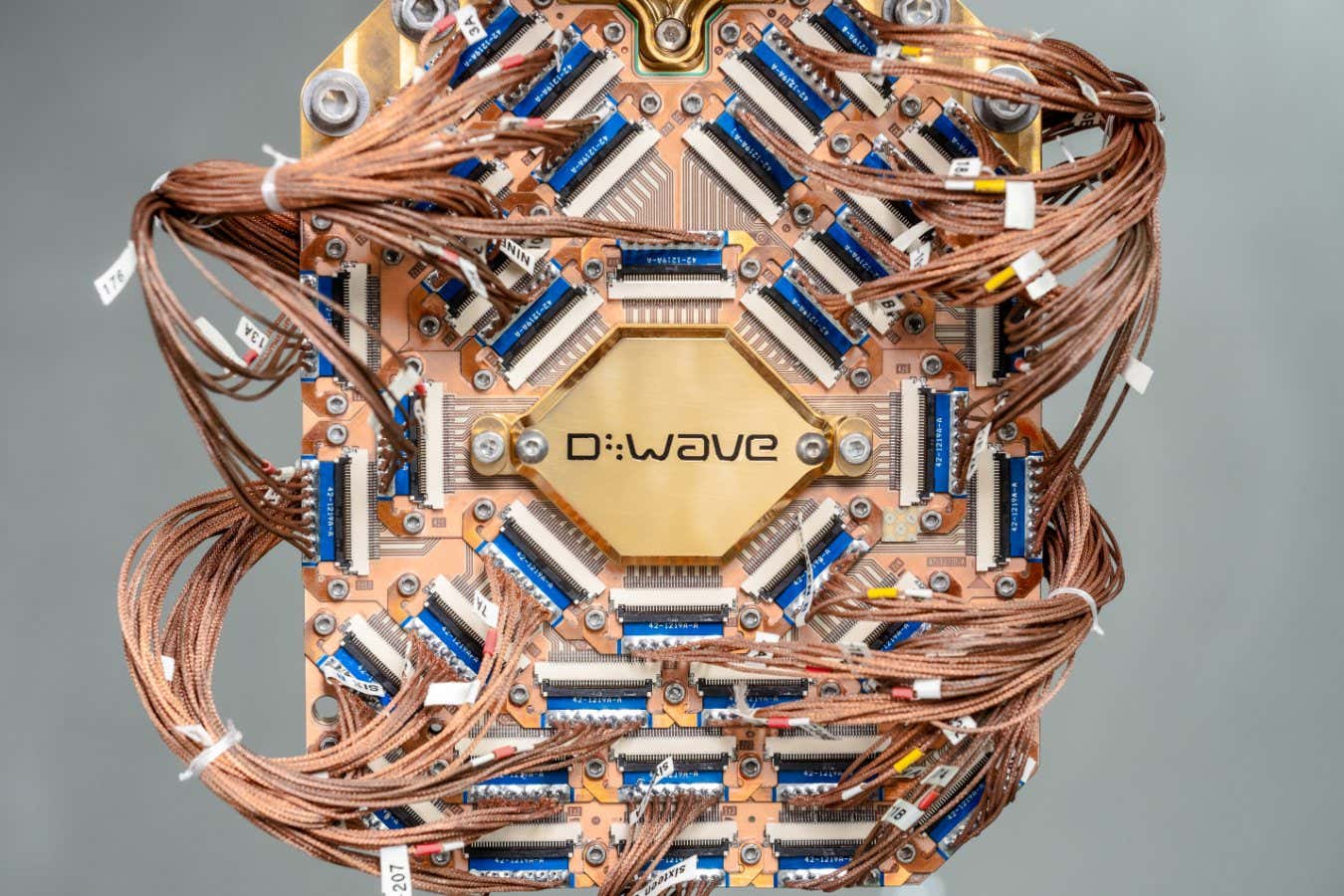D-Wave’s claim that its quantum computers can solve problems that would take hundreds of years on classical machines have been undermined by two separate research groups showing that even an ordinary laptop can perform similar calculations
By Matthew Sparkes
12 March 2025
D-Wave’s Advantage2 quantum computer chip
Kent Kallberg/D-Wave
Quantum computing firm D-Wave says its devices can solve problems that would be virtually impossible for classical computers – but two separate research groups have now cast doubt on the claim.
As reported by New Scientist last year, D-Wave published a pre-print claiming that its Advantage quantum computers could calculate transverse field Ising model problems – a quantum version of a mathematical approximation of how matter behaves when changing states, such as from a liquid to a gas – that would be impractically difficult to solve on a traditional computer.
Read more
Microsoft under fire for claiming it has a new quantum computer
Advertisement
That article has now passed peer review and been published in the journal Science on 12 March, but at the same time, researchers working on classical algorithms have shown that these problems are readily accessible to ordinary machines.
Dries Sels at New York University and his colleagues say that they have performed similar calculations on a normal laptop in just two hours, using a field of mathematics called tensor networks. These networks essentially reduce the amount of data a simulation requires, drastically cutting the computational power required to run it.
Andrew King at D-Wave says that this does nothing to change the company’s original claim. “They didn’t do all the problems that we did, they didn’t do all the sizes we did, they didn’t do all the observables we did, and they didn’t do all the simulation tests we did,” says King. “So it’s a huge advance, these are great researchers… but it’s not something that refutes our supremacy claim.”
